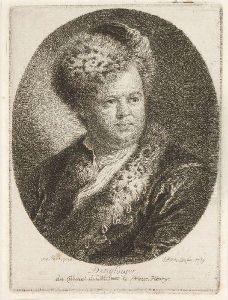Friedrich Georg Engler Paintings
Friedrich Georg Engler was not an artist in the traditional sense of a painter or sculptor. Instead, he was a renowned German botanist and taxonomist. Born on March 25, 1830, in Sagan, Prussia (now Żagań, Poland), Engler made significant contributions to the field of botany during his lifetime, particularly in plant taxonomy and phytogeography, the study of the geographic distribution of plant species.
Engler studied natural sciences at the University of Breslau (now Wrocław, Poland) and the University of Berlin. He received his doctorate in 1856. His early work focused on the flora of Silesia, but his interests and influence extended far beyond this region throughout his career. Engler is perhaps best known for his work on the 'Die Natürlichen Pflanzenfamilien' (The Natural Plant Families), which he edited alongside Karl A. E. Prantl. This extensive multi-volume work, initiated in 1887, aimed to describe all known plant families and genera and became a crucial reference in botany.
Engler's work was characterized by a comprehensive approach to botanical classification, which took both morphological and ecological factors into consideration. His classification system, often referred to as the Engler system, was widely accepted and used by botanists worldwide. He was also instrumental in creating the 'Syllabus der Pflanzenfamilien' (Syllabus of Plant Families), a summary of the plant kingdom that saw multiple editions.
In addition to his editorial and classification work, Engler was also the director of the Berlin Botanical Garden and the associated Botanical Museum from 1889 until his retirement in 1921. Under his leadership, the garden became one of the most important centers for botanical research in the world. He was able to significantly expand the garden's plant collection through expeditions and exchanges with other institutions.
Engler's influence extended through his mentorship of other botanists and through the numerous publications he authored or co-authored. His research expeditions took him to various parts of the world, including Africa, where he studied tropical flora. The Engler and Prantl system of plant taxonomy reflected his broad research and understanding of the plant kingdom.
Friedrich Georg Engler passed away on October 10, 1900, in Berlin, Germany. His legacy lives on in the numerous species and genera named in his honor, as well as in the enduring utility of his systematic works in the field of botany. Engler's contributions remain a cornerstone in the study and classification of plants, and his influence is still felt in botanical sciences today.




